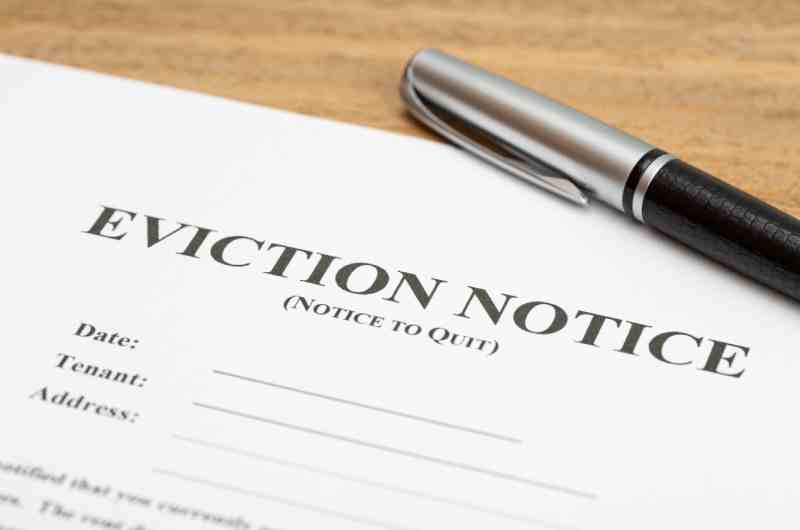
As a landlord, part of your job is to maintain a harmonious living environment for your tenants. Unfortunately, noise complaints are one of those annoyances that can lead to legal disputes and vacancies due to dissatisfaction.
The good news is that by adopting a proactive approach, landlords can implement clear policies, employ effective communication strategies, and enforce appropriate actions to reduce these disturbances. This guide aims to provide practical steps and insights for landlords to handle noise complaints and better cultivate a peaceful and pleasant residential community.
Foster Open and Easily Accessible Communication Channels
Encourage tenants to report noise disturbances promptly by providing multiple communication options, such as direct phone lines, email, or online portals dedicated to maintenance issues. Make it clear that you take noise complaints seriously and intend to investigate thoroughly.
By doing so, you can build trust and respect, demonstrating your commitment to maintaining a peaceful living environment. You should also make an effort to regularly remind tenants of these communication channels through newsletters or community meetings, ensuring they feel heard and supported.
Establish Clear Noise Policies and Guidelines
Establishing clear noise policies and guidelines is a crucial step in managing and preventing noise complaints. Outline specific rules regarding acceptable noise levels, quiet hours, and the types of activities that could potentially disturb other residents.
Communicate these policies to all tenants upon move-in and include them in the lease agreement to ensure everyone is aware of the expectations. Additionally, consider providing tenants with written documents or digital resources that explain the noise policies in detail. This transparency not only sets the standard for acceptable behavior but also empowers tenants to be accountable for their actions.
Promptly and Thoroughly Investigate Complaints
When a tenant submits a noise complaint, respond promptly and investigate the matter thoroughly. Start by reaching out to the tenant who submitted the complaint to gather detailed information about the disturbance, such as the time, duration, and nature of the noise. This helps in creating a clear picture of the incident and identifying patterns that may require further attention.
Next, speak with the alleged noisy tenant to inform them of the complaint and to hear their side of the story. Addressing both parties with fairness and respect ensures that everyone feels acknowledged and heard. Additionally, consider conducting your own investigation by visiting the property at times when the noise is reported to be most disruptive. This firsthand observation can provide valuable insights and help in verifying the validity of the complaints.

Calmly Address the Offending Tenant
As mentioned, part of your investigative process includes having a sit down with the tenant the complaint addresses, but it’s not as simple as knocking on their door and having a chat. Begin by scheduling a private meeting with the tenant, ensuring a setting that is both comfortable and conducive to an open dialogue. Start the conversation on a positive note, acknowledging any previous good behavior or compliance with the property rules.
Clearly explain the nature of the noise complaint, emphasizing its impact on their neighbors and the overall community. Use specific examples and detail the times and types of disturbances reported. This helps the tenant understand the seriousness of the issue without feeling personally attacked. However, encourage the tenant to share their perspective and provide any relevant context that might explain the noise, such as unexpected guests or temporary disruptions.
Demonstrate empathy and understanding while firmly reiterating the established noise policies and expectations. By approaching the situation with a balance of firmness and compassion, you can foster a cooperative spirit and pave the way for a peaceful resolution.
Issue a Written Notice
If the noise problem persists despite initial conversations, issuing a written notice serves as a formal step to address the ongoing issue. This notice should document the noise complaint, including specific instances and timeframes, to provide a concrete record of the disturbances. Additionally, cite the lease agreement or community guidelines that outline the noise policies, stressing that the tenant violates these terms.
In the document, clearly state the expected actions that the tenant must take to rectify the situation and the potential consequences for continued non-compliance, such as fines or eventual eviction. This formal approach also protects you as a landlord in case of any legal disputes that may arise as a result of the noise complaint.
Offer Noise-Reducing Solutions
If the source of the noise complaint isn’t your tenant, or it’s only a matter of time before the offending tenant leaves, your only solution may be to offer noise-reducing solutions. Encourage the use of area rugs, which can absorb sound and reduce noise transmission between floors. Additionally, offer to install weatherstripping on doors and windows to help block external noises.
For tenants who enjoy playing musical instruments or have a home theater system, suggest utilizing soundproofing materials, such as acoustic panels or foam, to dampen excessive noise. Or, if you have the resources, “move” the bedroom to another room on the farthest side away from the source of the noise.
Document The Incidents
Whether or not the noisy offender is your tenant or not, documenting noise complaints and related incidents meticulously is paramount in managing and resolving these disturbances. Documenting noise complaints and related incidents meticulously is paramount in managing and resolving these disturbances effectively.
Start by maintaining a comprehensive log where each complaint is recorded promptly upon receipt. Include essential details such as the date, time, and nature of the noise, as well as the names of the tenants involved. This thorough documentation not only helps in identifying patterns and recurrent issues but also provides a solid basis for any necessary legal actions.
Additionally, keep records of all communications with the tenants regarding the complaint, including emails, phone calls, and meeting notes. By having a detailed and organized documentation system, you can ensure that every incident is accounted for. This practice also safeguards you as a landlord, offering clear evidence that can be referenced in case disputes escalate or legal intervention is required.

Use Eviction or Call Authorities as a Last Resort
Landlords have a responsibility to create a peaceful living environment for all residents. If a tenant’s behavior repeatedly disrupts this peace, you may have to issue an eviction notice. This process will be easier to start if you’ve followed the appropriate steps and strategies listed above to set the foundation of your eviction claim.
Understandably, following all these steps to handle a simple noise complaint can be time-consuming and arduous for landlords who are already juggling responsibilities. That’s why, at Excalibur Homes, our Atlanta real estate services are tailored to taking some of the weight of landlordship off your shoulders. From managing tenant complaints and requests to finding reliable tenants, we make sure your property is in good hands.

